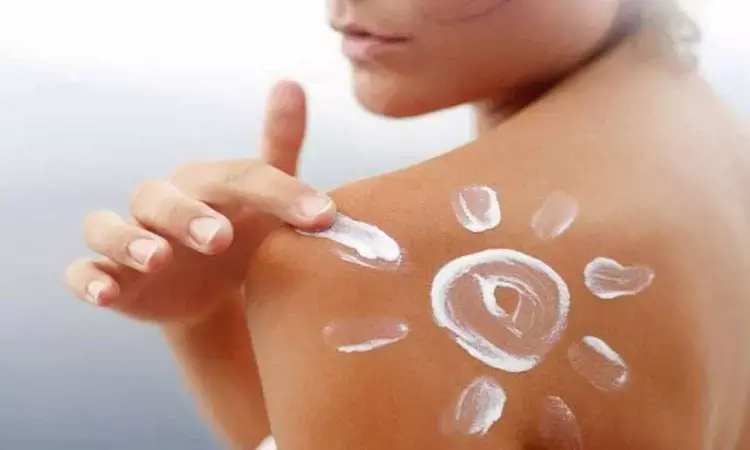- Home
- Medical news & Guidelines
- Anesthesiology
- Cardiology and CTVS
- Critical Care
- Dentistry
- Dermatology
- Diabetes and Endocrinology
- ENT
- Gastroenterology
- Medicine
- Nephrology
- Neurology
- Obstretics-Gynaecology
- Oncology
- Ophthalmology
- Orthopaedics
- Pediatrics-Neonatology
- Psychiatry
- Pulmonology
- Radiology
- Surgery
- Urology
- Laboratory Medicine
- Diet
- Nursing
- Paramedical
- Physiotherapy
- Health news
- Fact Check
- Bone Health Fact Check
- Brain Health Fact Check
- Cancer Related Fact Check
- Child Care Fact Check
- Dental and oral health fact check
- Diabetes and metabolic health fact check
- Diet and Nutrition Fact Check
- Eye and ENT Care Fact Check
- Fitness fact check
- Gut health fact check
- Heart health fact check
- Kidney health fact check
- Medical education fact check
- Men's health fact check
- Respiratory fact check
- Skin and hair care fact check
- Vaccine and Immunization fact check
- Women's health fact check
- AYUSH
- State News
- Andaman and Nicobar Islands
- Andhra Pradesh
- Arunachal Pradesh
- Assam
- Bihar
- Chandigarh
- Chattisgarh
- Dadra and Nagar Haveli
- Daman and Diu
- Delhi
- Goa
- Gujarat
- Haryana
- Himachal Pradesh
- Jammu & Kashmir
- Jharkhand
- Karnataka
- Kerala
- Ladakh
- Lakshadweep
- Madhya Pradesh
- Maharashtra
- Manipur
- Meghalaya
- Mizoram
- Nagaland
- Odisha
- Puducherry
- Punjab
- Rajasthan
- Sikkim
- Tamil Nadu
- Telangana
- Tripura
- Uttar Pradesh
- Uttrakhand
- West Bengal
- Medical Education
- Industry
Combo of oral and topical photoprotection with P leucotomos extract beneficial against actinic keratosis

Italy: A recent study has stated that the combination of topical and oral immune photoprotection is beneficial against actinic keratosis (AK) compared to topical photoprotection alone.
In the study published in Photodermatology, Photoimmunology and Photomedicine, the combination of topical + oral photoprotection with Fernblock (a biological non-filtering active principle endowed with protective activity when used orally or topically) significantly reduced AK recurrences and the requirement for further treatment.
Excessive exposure to UV radiation or sunlight causes acute and chronic skin damage. Actinic damage can be acute, i.e. sunburn, whereas chronic injury causes cancer and photoaging, including non-melanoma skin cancer and melanoma. The damages can be prevented by photoprotection helps in preventing. The most common strategy is using topical sunscreens.
Sunscreens are primarily made of physical (inorganic)/chemical (organic) filters. However, some contain additional components such as antioxidant substances and photon quenchers, often of natural origin, which reduces UV-induced oxidative damage. The authors suggest that this alone justifies systemic (oral) photo protectors to complement topical photoprotection with generalized antioxidant activity, protection of skin immunosurveillance, DNA protection and repair,anti-hyperpigmentation, and anti-ageing activities. However, most people do not apply it correctly or sufficiently. Major risk factors for cancer onset and skin damage could be insufficient application and failure to replay after removing or eliminating filters from the skin due to friction, sweating, etc.
Against the above background, Giovanni Pellacani, Dermatology Clinic, University La Sapienza, Rome, Italy, and colleagues sought to evaluate the effects of specific topical formulations and the potential additional protection offered by oral photoprotection in high-risk subjects.
The researchers described a prospective, multicentre, randomized controlled, open-label study with three arms to study the differences between [T], topical treatment; [Cnt], self-administered sun protection; [TO], topical + oral treatment; for actinic keratosis management in a cohort of patients of advanced age displaying severe actinic damage (SAD).
There was a common component in the treatments given to groups [T] and [TO], a botanical extract, Fernblock, with demonstrated photoprotective activity.
The study revealed the following findings:
- In total, 131 subjects were distributed randomly in the three groups, followed up clinically at three different time points, at the beginning of the study (t = 0) and after 6 and 12 months.
- Analysis of clinical data and examination using reflectance confocal microscopy (RCM) revealed that group [T] and [TO] displayed decreased clinical AK and field cancerization parameters, including the number of new lesions, and reduced the need for additional interventions in these patients.
- RCM revealed normalization of the keratinocyte layer.
- Improvements in AK and field cancerization parameters were most significant in the group [TO], suggesting that topical and oral photoprotection improves the clinical and anatomical outcome compared to control conditions.
The findings showed that specific topical and topical + oral treatment with Fernblock of subjects already treated for AK and cancerization field (therefore at risk of recurrence) improved the control of AK and prevented new occurrences.
'"Polypodium leucotomos extract use reduces the development of new actinic keratoses, specifically among those who use both topical and oral immune photoprotection," the researchers conclude.
Dr Kamal Kant Kohli-MBBS, DTCD- a chest specialist with more than 30 years of practice and a flair for writing clinical articles, Dr Kamal Kant Kohli joined Medical Dialogues as a Chief Editor of Medical News. Besides writing articles, as an editor, he proofreads and verifies all the medical content published on Medical Dialogues including those coming from journals, studies,medical conferences,guidelines etc. Email: drkohli@medicaldialogues.in. Contact no. 011-43720751


